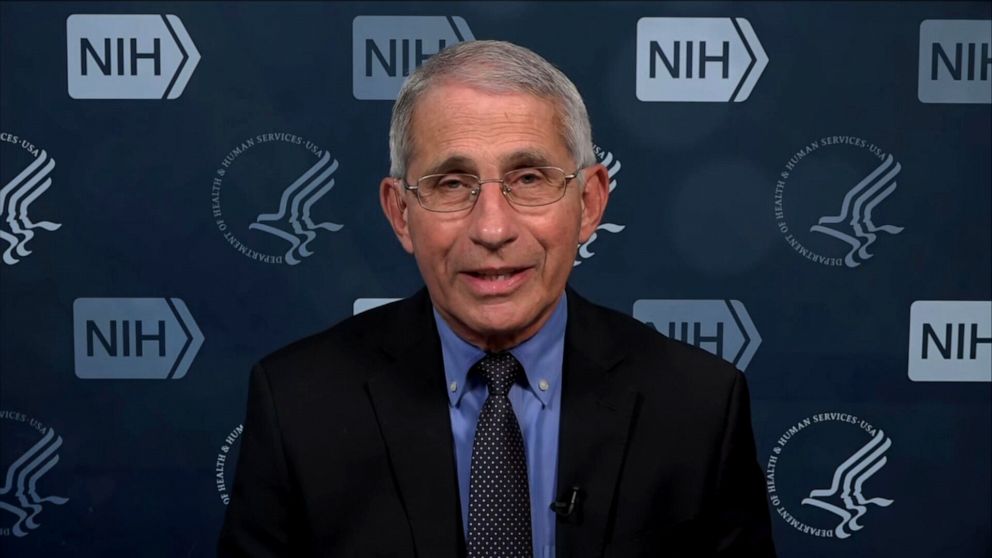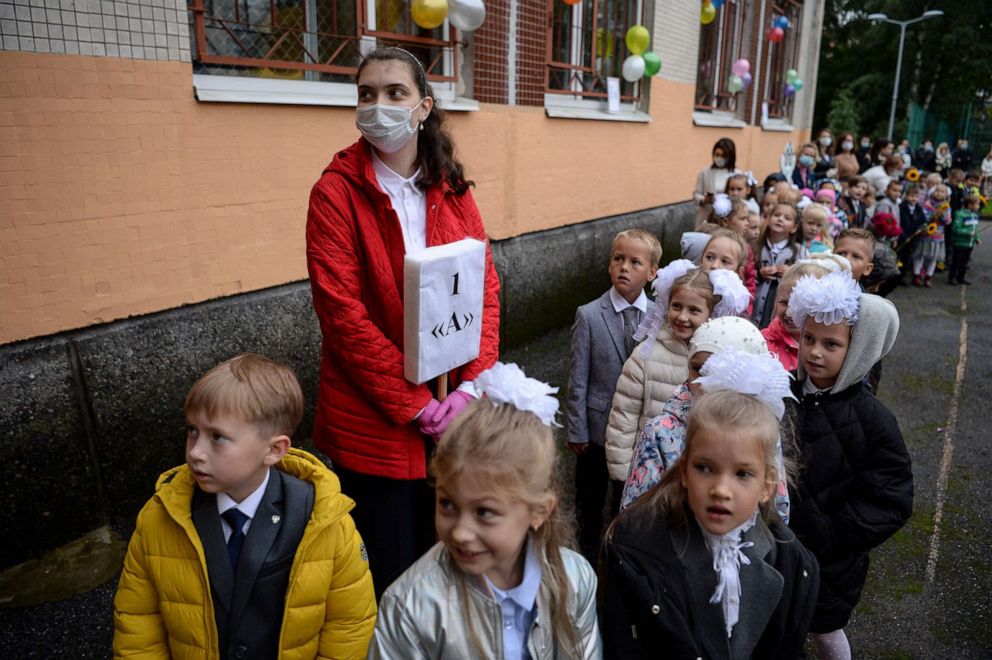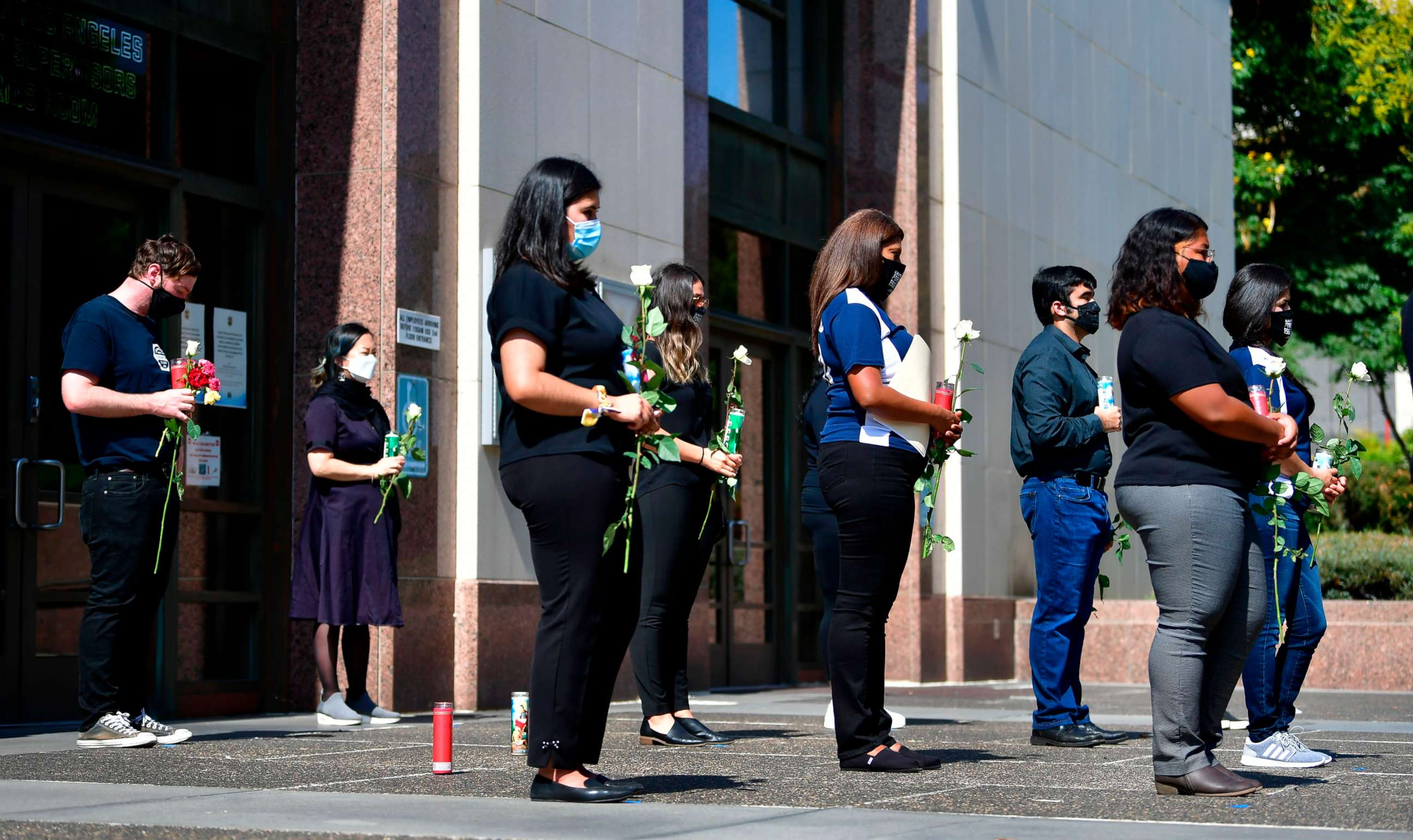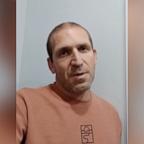'We’re all on the same team,' Fauci says of Trump
Dr. Anthony Fauci, the nation's top medical expert on the coronavirus pandemic and a key member of the White House coronavirus task force, is weighing in on comments President Donald Trump made during a recent interview with Fox News.
Speaking to Fox News’ Laura Ingraham on Monday, Trump said he "inherited" Fauci, who is the director of the National Institute of Allergy and Infectious Diseases, and that he disagrees with “a lot” of what he says.
"I think when you get statements like that, that doesn’t really reflect what goes on," Fauci told ABC News' Amy Robach in an interview Tuesday on "Good Morning America." "I think that’s kind of a distraction to pit me against the president. We’re all on the same team."

Fauci also attempted to clarify new information released by the U.S. Centers for Disease Control and Prevention, which showed 94% of those who died from COVID-19 as of last week had underlying health conditions and contributing causes.
"The point the CDC was trying to make was that a certain percentage of them had nothing else but just COVID. That does not mean that someone who has hypertension or diabetes who dies of COVID didn’t die of COVID-19. They did," he said. "So the numbers that you’ve been hearing, the 180,000 plus deaths, are real deaths from COVID-19."
Trump, however, retweeted a conspiracy theory that suggested only 9,000 people have died from COVID-19 in the United States -- the original tweet has since been removed by Twitter.
"Let there not be any confusion about that. It’s not 9,000 deaths from COVID-19; it’s 180,000 plus deaths," Fauci added.
When asked about the CDC’s new guidelines on COVID-19 testing, Fauci admitted, "That did create some confusion."
"The way that sentence was said, it gave the impression that they’re not concerned about community spread and that people who are asymptomatic should not be tested," he said. "There’s no doubt that there are asymptomatic infection and that asymptomatic people can transmit and that you can and should test asymptomatic people."
"What the guideline was trying to do was to try to make the point that not everyone who wants to be tested should be tested; only if you need to be tested," he continued. "Understandably, that was confusing. Hopefully, that’s been straightened out now."






